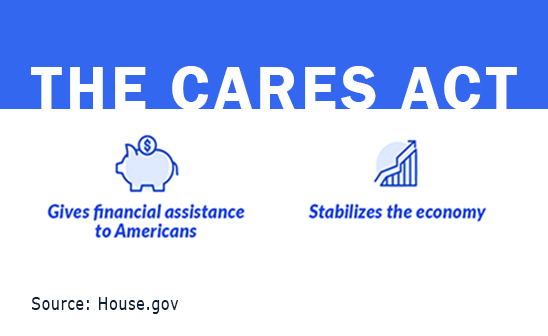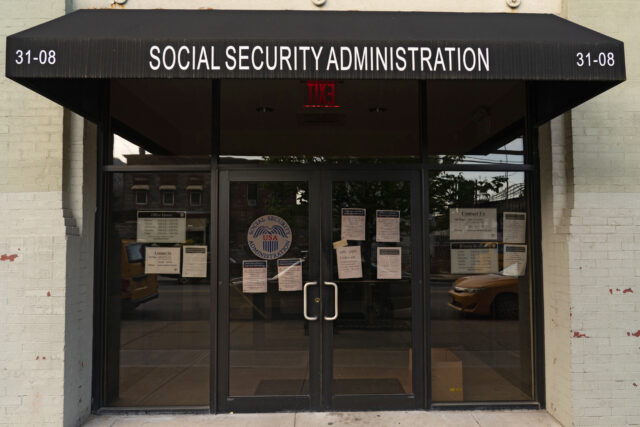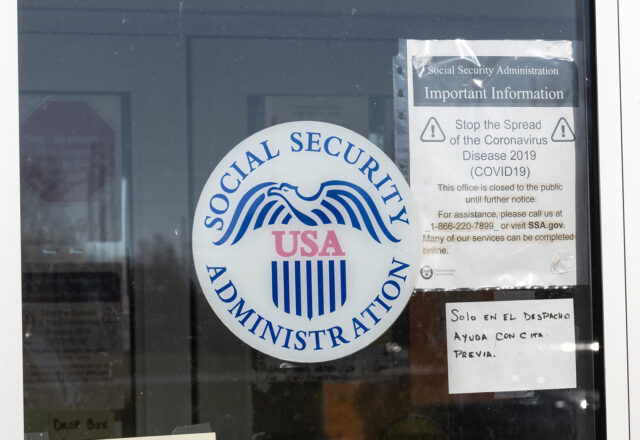
Federal COVID Aid Showed What Social Policies Can Do
For all the suffering the pandemic caused, it also showcased what federal social programs can do to improve disadvantaged people’s lives.
The assistance passed by Congress – all of it temporary – fell short of the ambitious New Deal spending of the 1930s but was more generous than the Great Recession bailout, much of which went to teetering financial institutions rather than individuals.
As the pandemic has waned, researchers are assessing an array of policies, including but not limited to relief checks deposited directly into bank accounts, automatic renewal of Medicaid eligibility, and a more generous child tax credit. This blog has already featured research analyzing these COVID-era programs. But it’s worth taking a step back and thinking about the legislation as one big experiment in the effectiveness of government assistance, resulting in tangible successes.
COVID relief checks. In a single week in March 2020, some 3.3 million people filed for unemployment benefits. With lightning speed, Congress passed the CARES Act approving cash assistance of up to $3,400 for families of four. One study found that the checks disproportionately helped those who most needed it: people who were already struggling financially. Another study confirmed the checks kept many low-income families afloat – the same people who felt the brunt of the layoffs.
An indirect infusion of cash also came from the CARES Act’s suspension of mortgage and student loan payments. The mortgage forbearance helped groups who were hit hardest by the pandemic, including residents of counties with a high incidence of COVID.
Medicaid. To protect poor and low-income Americans from the deadly virus, Congress approved additional funds for Medicaid, the federal-state health insurance program – on one condition. The states had to agree to keep their residents continuously enrolled, rather than requiring them to reapply for Medicaid every year. All 50 states signed on, pushing enrollment to record levels and expanding crucially needed health insurance at a dangerous time.
Like other pandemic policies, the continuous coverage requirement has expired, and 13.2 million people have lost Medicaid over the past year as states once again require residents to reapply.
But the Medicaid insurance that protected their health also had clear financial benefits for workers during COVID. One example: older workers emerged in much better shape if they lived in the states that had agreed to the Affordable Care Act’s 2014 expansion of coverage, according to research comparing their finances with residents in states that chose not to increase enrollment.
Child tax credit. Even before COVID, proposals to raise the child tax credit had support on both sides of the aisle, but it was never enough to get a permanent increase through Congress. When the economy nearly ground to a halt in the pandemic, however, Congress supported families by temporarily increasing the amount of the credit from $2,000 to $3,600 per year for each child under age 6 and to $3,000 for older kids. And they didn’t have to wait until tax time to get the funds. The credit was sent out in monthly cash payments.
In one study, the COVID tax credit dramatically reduced the child poverty rate in poor and low-income families reliant on Social Security retirement and disability benefits. In another study, Black families were big beneficiaries.
Parents also put the extra money to good use, paying for food, utilities and school supplies for their children.
The program was so effective that one researcher said at the time that a permanent increase in the credit should be “a top priority.” That didn’t happen, but the COVID experiment showed what it could do for families.
Several of the research studies reported herein was derived in whole or in part from research activities performed pursuant to a grant from the U.S. Social Security Administration (SSA) funded as part of the Retirement and Disability Research Consortium. The opinions and conclusions expressed are solely those of the authors and do not represent the opinions or policy of SSA, any agency of the federal government, or Boston College. Neither the United States Government nor any agency thereof, nor any of their employees, make any warranty, express or implied, or assumes any legal liability or responsibility for the accuracy, completeness, or usefulness of the contents of this report. Reference herein to any specific commercial product, process or service by trade name, trademark, manufacturer, or otherwise does not necessarily constitute or imply endorsement, recommendation or favoring by the United States Government or any agency thereof.
Comments are closed.







When a program works for the citizens of a country then it needs to be permanently implemented. During the pandemic, the study should have shown that people who needed the money most also showed what it takes financially to survive in the USA and live comfortably. It is sheer mean-spirited policies that pull back Medicaid benefits on people who need assistance. A foreign friend who would not permanently relocate to the USA and chose England instead, said that Americans give to everyone but Americans. I can see that is true!
Your commentary is instructive but ignores the level of massive fraud and overpayments in the US ranging from $500 billion +. There can be no further validation without enforcement, and fraud detection of the unbridled raid on Federal and state programs like COVID relief in all sectors. More balance in addressing this issue is required.